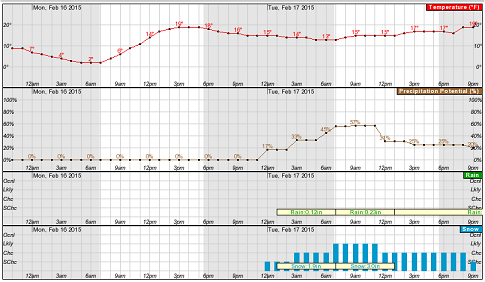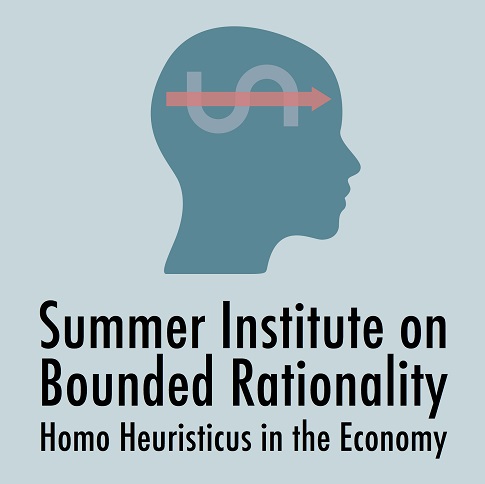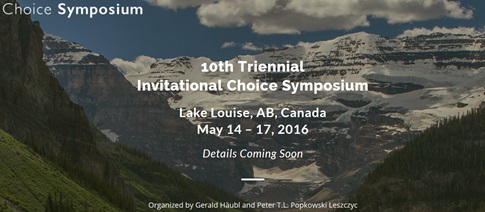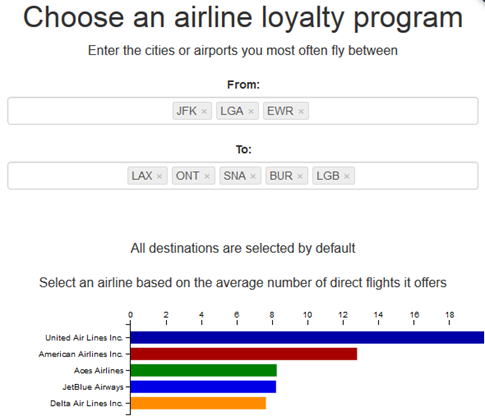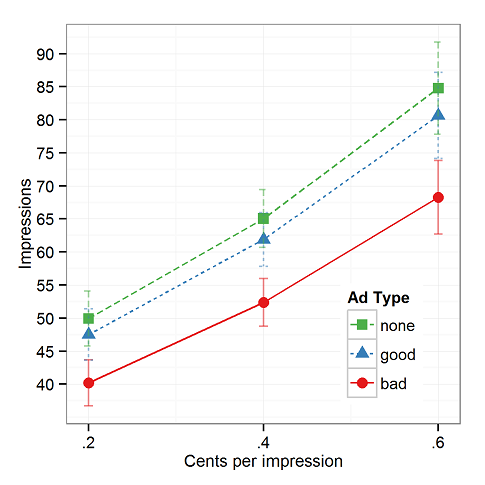SPSP 2015 PRECONFERENCES, FEB 26, 2015, LONG BEACH, CA
 Here at Decision Science News, we know precious little about SPSP. We’ve never been to the conference. We didn’t even know that SPSP stood for Society for Personality and Social Psychology before making the hyperlink in the last sentence. However, this year we will be going to an SPSP pre-conference!
Here at Decision Science News, we know precious little about SPSP. We’ve never been to the conference. We didn’t even know that SPSP stood for Society for Personality and Social Psychology before making the hyperlink in the last sentence. However, this year we will be going to an SPSP pre-conference!
Goodness gracious, do these people know pre-conferences! Look at the list here or pasted below for your convenience.
We still don’t get why precious little at this conference has to do with anything “social” or “personality” related, but we will be there at Long Beach pre-conferencing it up because they do have some appealing decision-making sessions.
Academic and Non-Academic Jobs for Social-Personality Psychologists (SPSP Training Committee and Graduate Student Committee): This preconference seeks to introduce attendees to a wide variety of academic and non-academic career paths available to social-personality psychologists. Registration is limited to 50 attendees, to facilitate an individualized, active, and collaborative environment. The morning will be devoted to six brief talks covering a range of different career paths (e.g., research university, undergraduate institution, private sector, non-profit). The afternoon will be devoted to mentored lunch tables followed by smaller breakout sessions that focus on practical, career-relevant skills, resources, and knowledge. Attendees register to eat lunch and attend breakout sessions with a choice of 10 different mentors. (Website) (Register) (Back to Top)
Advances in Cultural Psychology: The theme of the 2015 Advances in Cultural Psychology preconference is “Culture, Change, and their Dynamism.” Speakers include Yoshi Kashima, Ying-Yi Hong, Shige Oishi, Jean Twenge, Steve Neuberg, Vinai Norasakkunkit and Takashi Hamamura. These invited speakers will discuss how cultures change, and the dynamic relations between individuals, cultures, and other factors, and present their ground-breaking new work in cultural psychology. Additionally, a data blitz will allow advanced graduate students and post-docs to present current research. (Website) (Register) (Back to Top)
Attitudes Preconference: Evaluative processes are central to social psychology, and have been since the field’s earliest days. The Attitudes Preconference features speakers who are at the cutting-edge of research on evaluation. Their work addresses issues of basic cognitive and neurobiological processes in evaluation, motivational processes in evaluative processes, intersections of evaluative processes with other areas of social psychology, and interventions designed to change people’s evaluations and behavior. At the Attitudes Preconference, we value an intimate and interactive environment, and as such, have 30-minute talks with an additional 15 minute Q&A session after each talk. In addition, new to this year is a 45 minute data blitz session that gives graduate students and recent PhDs an opportunity to present their research in short format. (Website) (Register) (Back to Top)
Close Relationships: The Close Relationships preconference brings together cutting edge research and theory in relationship science from across social and personality psychology. We have a rich history of lively conversation, and the day is designed to provoke thought, and promote collaboration. This year’s lineup will feature a series of dynamic speakers (each with time for discussion), including a talk by the winner of the Caryl E. Rusbult Early Career Award. The data blitz will allow researchers at any stage to present their hottest new findings to the group in 3 short minutes (typically ~13 presenters; often young investigators). We will also present the graduate student research paper award, and we are planning an interactive special session on methodological & replication issues in relationships science. We expect another exciting meeting, and look forward to seeing you there! (Website) (Register) (Back to Top)
Common-Sense Beliefs and Lay Theories: One universal tool to make sense of the world surrounding us is the formation of common-sense beliefs and lay theories – various core assumptions about how social and non-social entities operate. This preconference covers the psychological underpinnings of a diverse range of such fundamental suppositions about the world. For example, invited speakers will cover lay theories about mind-body dualism, essentialism, justice, the cognitive prerequisites for the formation of such beliefs, and discuss the cognitive, affective, and behavioral consequences of holding them. (Website) (Register) (Back to Top)
Communicating Psychological Science to Policy-Makers (SPSP Advocacy Training): Concerned about future funding for social psychological research? Many social and personality psychology researchers are worried about what the future holds in terms of federal support for fundamental research. Join hundreds of your SPSP peers who have participated in this advocacy training over the years, led by seasoned science lobbyist and psychologist Dr. Heather O’Beirne Kelly from the APA Science Government Relations Office. Get the latest news from Capitol Hill and update your advocacy skills so that you can participate in the Stand for Science campaign and meet directly with your members of Congress back home to discuss issues vital to psychological science. This preconference is free to SPSP Members. (Website) (Register) (Back to Top)
Communicating Science to the Media: Tools for Psychologists (SPSP Media Training): Scientists who foster information-sharing and respect between science and the public are essential for the public communication of and engagement with science. The American Association for the Advancement of Science (AAAS) is facilitating a 3-hour communication-skills training program specifically designed for researchers. The workshop will include content such as message development, handing interactions or questions from the media or other audiences, identifying communication opportunities, and honing public presentation skills including on-camera practice. The workshop format allows for collaborative learning through small-group discussion, resource sharing, and participation in critique of other participants’ presentations. This preconference is free to SPSP Members. (Website) (Register) (Back to Top)
Dynamical Systems & Computational Modeling: Social Dynamics in a Changing World: The theme for this year’s preconference is Social Dynamics in a Changing World. Modern technology (e.g., the internet, social media, texting) is transforming the nature of social life in the 21st century, as well as providing a range of new methods and tools for studying it. We will showcase the relevance of this approach for understanding and investigating how modern technology is changing the dynamics of social life and how we study it—from social interaction, opinion formation, and social influence to ingroup – outgroup relations and the political process. We will assemble a group of social psychologists with expertise in dynamical systems, computational modeling, social network analysis, and Big Data. (Website) (Register) (Back to Top)
Embodiment: Spike W. S. Lee and Michael Robinson are pleased to organize the 5th annual SPSP embodiment preconference. Embodiment consists of the idea that our bodies, and how they interact with the environment, play a major, typically under-appreciated role in human psychology and behavior. Areas of study include perception, representation, experience, and action. The field is interdisciplinary and major developments have occurred in social psychology, cognitive psychology, and affective science. It is a young but vibrant field. Confirmed speakers for 2015 include Lera Boroditsky, George Lakoff, Dennis Proffitt, Anne Maass, and David Pizarro. There will also be two sessions for shorter 15-minute talks and a poster session. A call for submissions will be made in October. About 50 attendees are expected. Breakfast, afternoon snacks, and audio-visual equipment will be provided. Attendees will make their own lunch plans. (Website) (Register) (Back to Top)
Emotion Preconference: The Emotion Preconference is for social psychologists with an interest in affect and emotion and has been held prior to the SPSP conference since 2006. Each emotion preconference over the last 5 years has registered 150-200 attendees. This year the preconference will include three symposia, a data blitz, a poster session, a hot buffet lunch, and a keynote speaker. Richard Davidson is the keynote speaker and symposia include sessions on “Positive Emotion,” “Stress,” and “Intergroup Emotion.” (Website) (Register) (Back to Top)
Evolutionary Psychology: The SPSP Evolutionary Psychology Preconference, now in its 12th year, provides a forum for discussing cutting-edge research examinging how social psychological processes have been shaped by the recurring social and reproductive challenges humans faced throughout their evolutionary past. Nationally and internationally known researchers as well as up-and-coming new investigators and graduate students present findings through talks and a recently added data blitz. The presented research covers a range of topics, including: romantic relationships, decision-making, mental health, aggression, prejudice, social cognition, and personality development. Thus, the Evolutionary Psychology Preconference brings together and fosters collaboration between researchers from various domains of social and personality psychology. Additionally, this preconference introduces students unfamiliar with an evolutionary framework to a meta-theoretical approach that may be useful for guiding their future studies. (Website) (Register) (Back to Top)
Group Processes & Intergroup Relations: Following years of GPIR preconference tradition, we will again focus on facilitating the sharing and discussion of groundbreaking research in the field of group processes and intergroup relations. All of our speakers will address topics related to the general theme of diversity (e.g., intergroup interactions, discrimination). Their talks will shed light on both practical and theoretical implications. Confirmed speakers include: Glenn Adams, Kerry Kawakami, Cheryl Kaiser, Laurie O’Brien, Rob Sellers and Daryl Wout. Following the tradition of this preconference, two graduate students or recent PhDs will also give a talk. In addition, there will be a poster session for researchers to share ideas and get feedback about their ongoing projects. Participants can also mingle and exchange their ideas during breakfast, lunch, and coffee breaks. (Website) (Register) (Back to Top)
Happiness & Well-being: What is happiness and should we pursue greater subjective well-being (SWB)? Although philosophers have pondered these questions for centuries, the scientific study of happiness has exploded over the past 30 years, offering insight into the conceptualization, measurement, causes, and consequences of SWB. This preconference will bring together young investigators and world experts to share recent theory and findings. (Website) (Register) (Back to Top)
Judgment and Decision Making: We examine the psychology of judgment and decision making, broadly construed. Topics include: intertemporal decisions, emotion, judgment and perception of risk, and consumer choice. (Website) (Register) (Back to Top)
Justice and Morality: For 13 years, Justice and Morality has convened the top scholars in the field. We have a compelling line up of speakers who study diverse topics. They include Peter Ditto (politics), Kiley Hamlin (development), Peter Ubel (medical ethics), Adam Cohen (religion), Mario Gollwitzer (punishment), Sarah Brosnan (evolution) and Roy Baumeister (free will; keynote speaker). Graduate students are encouraged to submit posters, three of which will be selected as microtalks. Breakfast, lunch and cocktail hour included. (Website) (Register) (Back to Top)
Lifespan Social-Personality: The Lifespan Social-Personality Preconference acknowledges the demographic shifts of our modern society and hightlights the scientific importance of understanding and integrating lifespan developmental psychology in social-personality research. The fields of social-personality psychology and lifespan development are each growing rapidly. While both fields are independently growing in size and importance for modern psychological research, there is also an increased interest in the intersection of lifespan development research and social-personality psychology. A diverse set of symposia featuring top researchers in the field will foster lifespan social-personality psychology through examining Eriksonian development, self-regulation, and methodological issues. In addition, this preconference will offer a poster session during an on-site lunch at which all registered attendees will be encouaged to present their most recent work in the area of lifespan social-personality development. (Website) (Register) (Back to Top)
Mental Simulation: Mental simulation allows us to connect our thoughts about what could have been to our musings about what is yet to be, and enables flights of fantasy that provide a respite from reality. This session will feature discussions about visual imagery, perspective-taking, narrative transportation, and thought flow, as well as the impact that such mental activities have on our social lives. Daniel Schachter’s keynote will connect the themes echoed in each talk by describing the critical role of memory and how specific brain structures facilitate the generation of alternative realities. (Website) (Register) (Back to Top)
Nonverbal: The fourth SPSP Nonverbal Preconference will continue in the tradition of previous years to celebrate the interdisciplinary nature of the study of nonverbal communication. This event will feature four invited talks from accomplished nonverbal scholars, in addition to competitively selected brief talks and posters. The 2015 speakers will be: Norah Dunbar (University of California, Santa Barbara), Derek Isaacowitz (Northeastern University), David Matsumoto (San Francisco State University) and Linda Tickle-Degnen (Tufts University). Junior researchers will be invited to contribute paper proposals in the data blitz format of SPSP, with talks ranging 8-10 minutes in length. We look forward to bringing together scholars from different backgrounds in order to facilitate communication and collaboration. (Website) (Register) (Back to Top)
Political Psychology: Please join us for the 6th annual Political Psychology preconference. Leading social psychologists, political scientists, and sociologists in various stages of their careers will discuss current research on topics aimed toward furthering the understanding of political behavior. Topics will include political polarization, the role of genetics in politics, political persuasion, intergroup threat and prejudice, and political misinformation. In addition, we will host a graduate student talk, a data blitz, a poster session and a paper-swap. As in previous years, our objectives in organizing this event are to honor leaders in the field, to break down boundaries between social psychology and political science, and to promote the next generation of political psychologists. (Website) (Register) (Back to Top)
Psychology of Religion & Spirituality: This preconference will highlight classic, contemporary, and emerging empirical research at the interface of social-personality psychology and the psychology of religion-spirituality. The program will consist of invited research presentations and a research poster discussion. Continental breakfast, drinks, and a buffet lunch will be provided for those who preregister. (Website) (Register) (Back to Top)
Self & Identity Preconference: A preconference on self and identity has been a fixture of the SPSP conferences for many years. This year’s preconference continues the tradtition by featuring and exciting and eclectic lineup of seasoned contributors to the study of self and identity as well as younger investigators at the forefront of the field. We are also honored to include scholars from outside the realm of self and identity who conduct cutting-edge research relevant for this audience. In addition, the preconference will feature invited addresses by the Early Career and Lifetime Career Award winners. With a diverse panel of speakers reflecting the depth and breadth of the field, the organizers hope to make this preconference a testament to the vitality of current self and identity research. (Website) (Register) (Back to Top)
Sexuality: Sexuality is a vibrant and growing area of research in social-personality psychology, in no small part evidenced by the American Psychological Association’s recent publication of the first ever Handbook on Sexuality and Psychology; a two volume manual that prominently features the research of a number of leading social-personality psychologists. Our planned sexuality preconference for the 2015 SPSP meeting will draw together top scholars in this field, including Meredith Chivers, Gurit Birnbaum, Eli Finkel, Justin Garcia, Monique Ward, and Justin Lehmiller, to showcase some of the many exciting developments in human sexuality research. Our approach is to highlight the diverse and interdisciplinary nature of the study of sexuality, featuring work on changes in sexual desire across relationship development, female sexual arousal patterns, evolutionary perspectives on human sexuality, media influences on sexual behavior, and teaching considerations for college sexuality courses. Our goal is to educate social psychologists about the relevance of sexuality to their own work. (Website) (Register) (Back to Top)
Social Cognition Preconference: The Social Cognition Preconference, sponsored by the International Social Cognition Network (ISCON), spotlights emerging research that exemplify the social cognition approach to addressing psychological phenomena. This year, in addition to presenting and honoring the ISCON 2013 Best Paper Award and ISCON 2014 Early Career Award winners, we will also have two sessions highlighting recent advances in motivated social cognition. The first session will focus on emerging research on self-regulation and goal pursuit; the second session will focus on recent work on social justice and social change. (Website) (Register) (Back to Top)
Social Neuroendocrinology: Social neuroendocrinology is a rapidly-growing area within social psychology that examines the interface between hormones and social behavior. This preconference examines the role of neuroendocrinological systems in basic social and personality processes such as close relationships, emotion, aggression, and dominance. Social NeuroEndo includes both an invited speaker series and a short-form Data Blitz session for early-career scholars. This year, we have an exciting line-up of speakers that represent a diversity of research topics and neuroendocrinological methods. (Website) (Register) (Back to Top)
Social Personality Health Preconference: The Social Personality Health Network is excited to present the 7th SPSP Preconference that is dedicated to examining the reciprocal relationship between social/personality psychology and health. The preconference, traditionally the largest of the SPSP preconferences, will present research at multiple levels of analysis, and topics this year will include socioeconomic and racial health disparities, stress, psychoneuroendocrinology, behavior change, meditation, body image, doctor-patient communication, sleep, and Big Data. Two graduate student awards will be presented, along with an Early Career Research award. (Website) (Register) (Back to Top)
Social Psychology & Law: This preconference features presentations in the areas of discrimination, procedural justice/social justice, and immigration. Specifically the discrimination symposium examines explicit and implicit biases in the law. The procedural/social justice symposium looks at legitimacy and perceptions of justice in the legal system. Finally the immigration symposium examines the role of social psychology in legislation and policy. The preconference will include 10-minute datablitz presentations as well as poster presentations from graduate students and new researchers. (Website) (Register) (Back to Top)
Society for the Teaching of Psychology (STP) Preconference: One of the most practical of preconferences, the STP PreCon provides attendees with not only conceptual discussions but also directly useable teaching tips, activities, demonstrations, and suggsetions. With both invited keynote speakers and open submissions for teaching talks and the popular teaching blitz, the STP PreCon is beneficial for everyone from graduate students to seasoned professors at a range of institution types. (Website) (Register) (Back to Top)
Subjective Time and Mental Time Travel: Mental time travel and subjective time are important human capacities that influences many psychological processes at the individual, interpersonal, group and intergroup levels. One may focus on the past (e.g., nostalgia, regrets) or look at the future (e.g., goals, decision making, affective forecasting), but at the end time is subjective and social psychological factors influence the distance that one mentally travel into the past or the future and its impact on our judgment and self-identity. (Website) (Register) (Back to Top)
Sustainability Psychology:The 4th annual Sustainability Psychology preconference invites social psychologists of all stripes to think about how their work relates to issues of environmental conservation and sustainability. We’ll spend the day hearing about and sharing exciting new work at the intersection of sustainability and social psychology. The preconference also provides an opportunity for networking among researchers and practitioners in the field. We hope you’ll join us in Long Beach! (Website) (Register) (Back to Top)
 Subscribe to Decision Science News by Email (one email per week, easy unsubscribe)
Subscribe to Decision Science News by Email (one email per week, easy unsubscribe)
